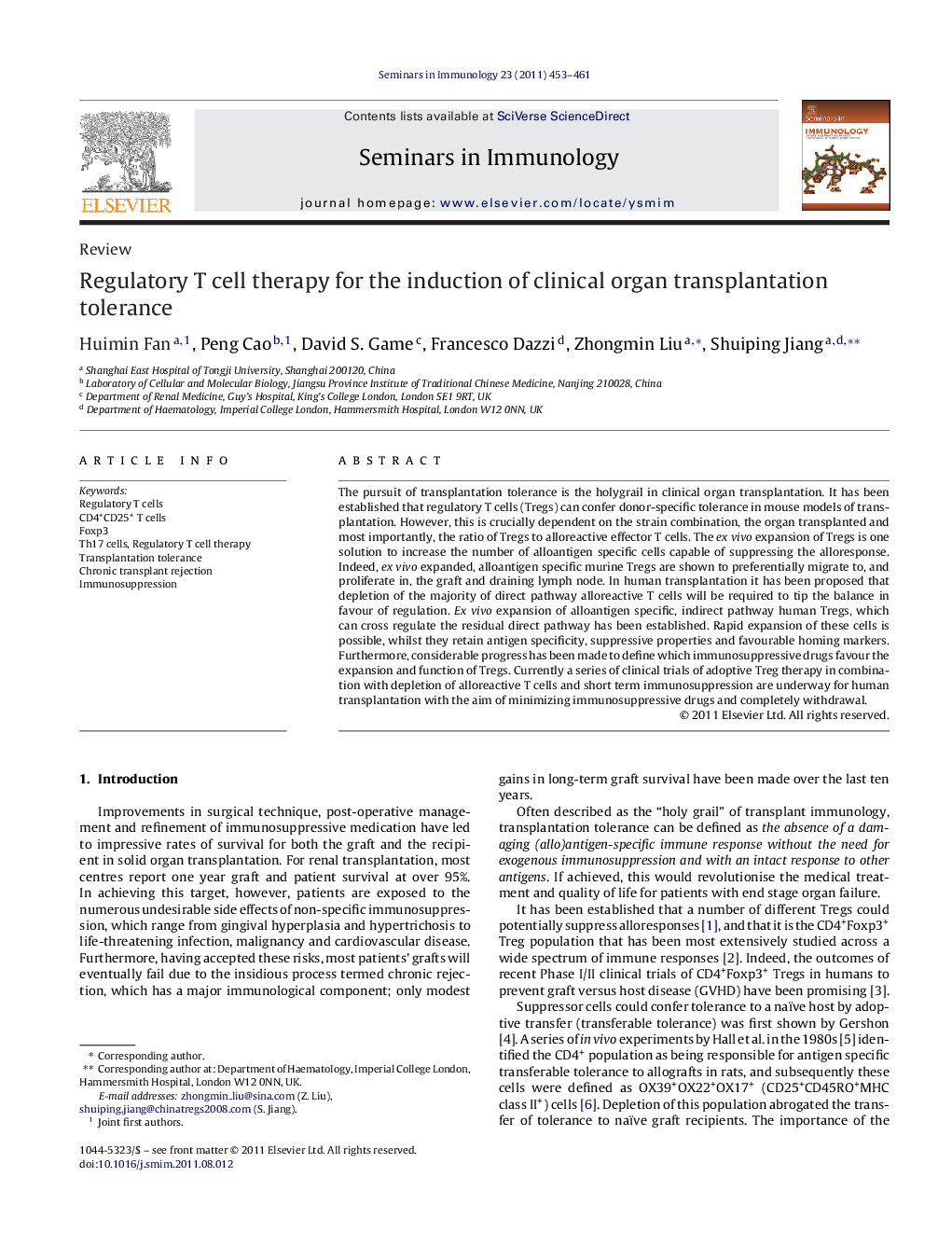| Article ID | Journal | Published Year | Pages | File Type |
|---|---|---|---|---|
| 3391541 | Seminars in Immunology | 2011 | 9 Pages |
The pursuit of transplantation tolerance is the holygrail in clinical organ transplantation. It has been established that regulatory T cells (Tregs) can confer donor-specific tolerance in mouse models of transplantation. However, this is crucially dependent on the strain combination, the organ transplanted and most importantly, the ratio of Tregs to alloreactive effector T cells. The ex vivo expansion of Tregs is one solution to increase the number of alloantigen specific cells capable of suppressing the alloresponse. Indeed, ex vivo expanded, alloantigen specific murine Tregs are shown to preferentially migrate to, and proliferate in, the graft and draining lymph node. In human transplantation it has been proposed that depletion of the majority of direct pathway alloreactive T cells will be required to tip the balance in favour of regulation. Ex vivo expansion of alloantigen specific, indirect pathway human Tregs, which can cross regulate the residual direct pathway has been established. Rapid expansion of these cells is possible, whilst they retain antigen specificity, suppressive properties and favourable homing markers. Furthermore, considerable progress has been made to define which immunosuppressive drugs favour the expansion and function of Tregs. Currently a series of clinical trials of adoptive Treg therapy in combination with depletion of alloreactive T cells and short term immunosuppression are underway for human transplantation with the aim of minimizing immunosuppressive drugs and completely withdrawal.
► Tregs maintaining transplantation tolerance has specificity for alloantigen. ► Adoptive transfer of alloantigen-specific Tregs to promote transplantation tolerance in animals has been established. ► Adoptive transfer of Tregs does not induce opportunistic infections in rodents. ► Ex vivo induction and expansion of alloantigen-specificity human Tregs are feasible. ► In clinical transplantation, immunosuppressive drugs which favor the induction, expansion and function of Tregs and immune monitoring for operational transplantation tolerance have been defined. ► The outcomes of recent Phase I/II clinical trials of Tregs to prevent graft versus host disease in bone marrow transplantation patients have been promising. ► Adoptive Treg therapy in combination of short term immunosuppressive drugs for the induction of clinical transplantation tolerance is underway.
